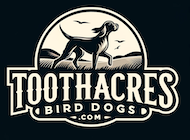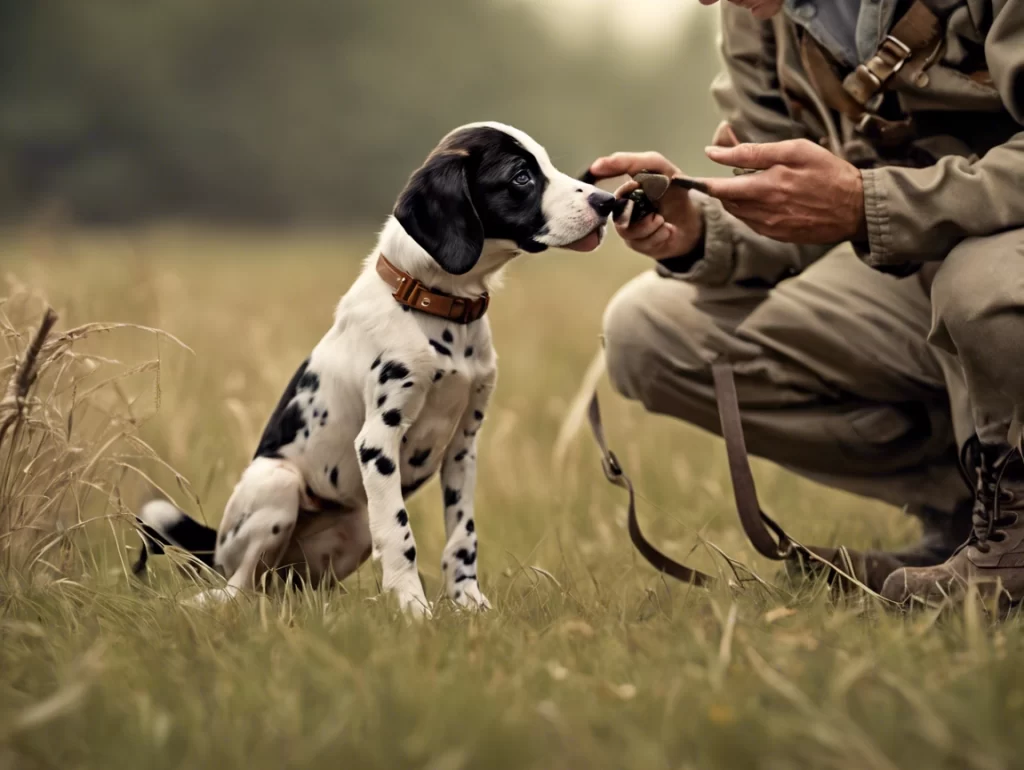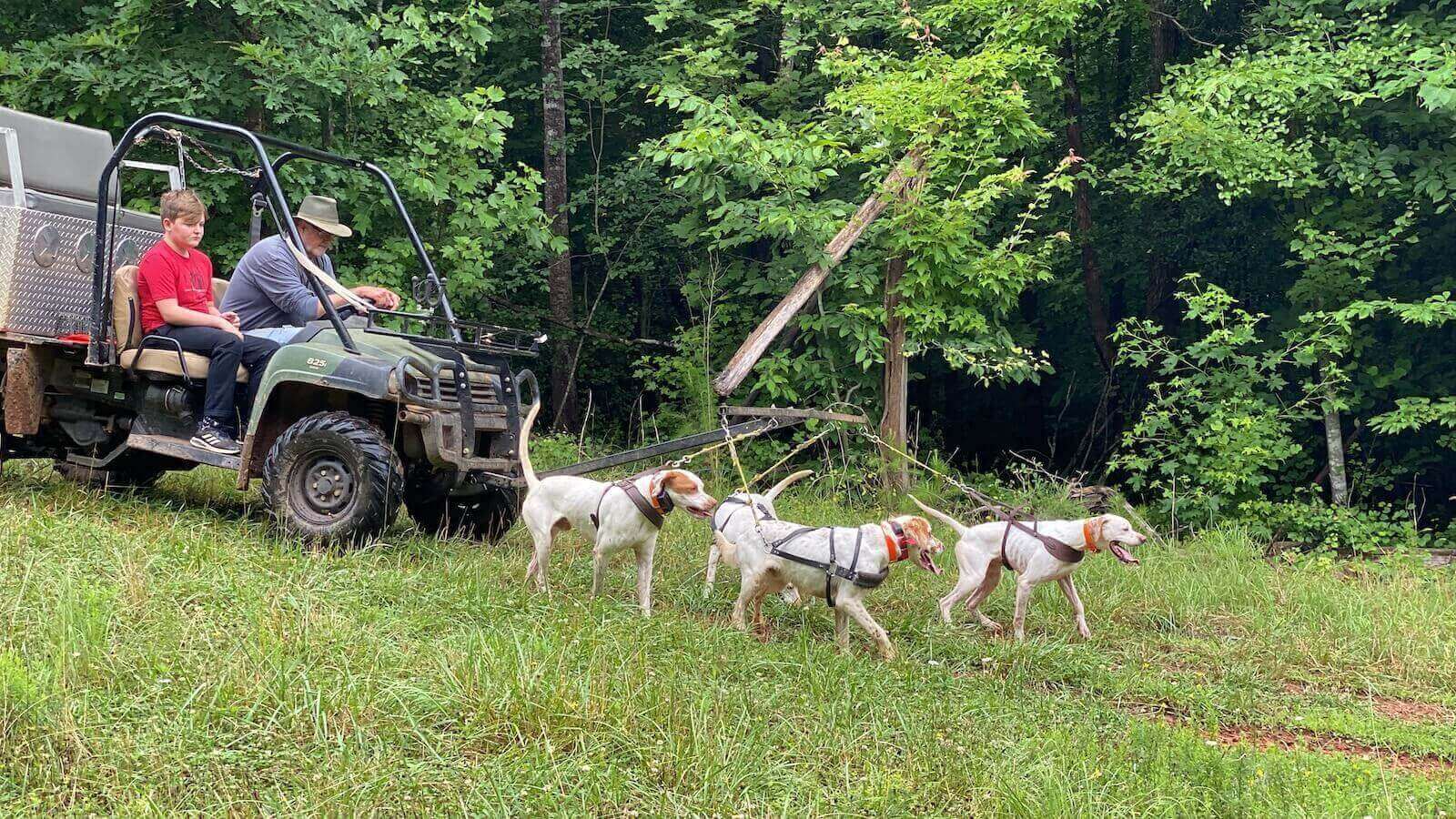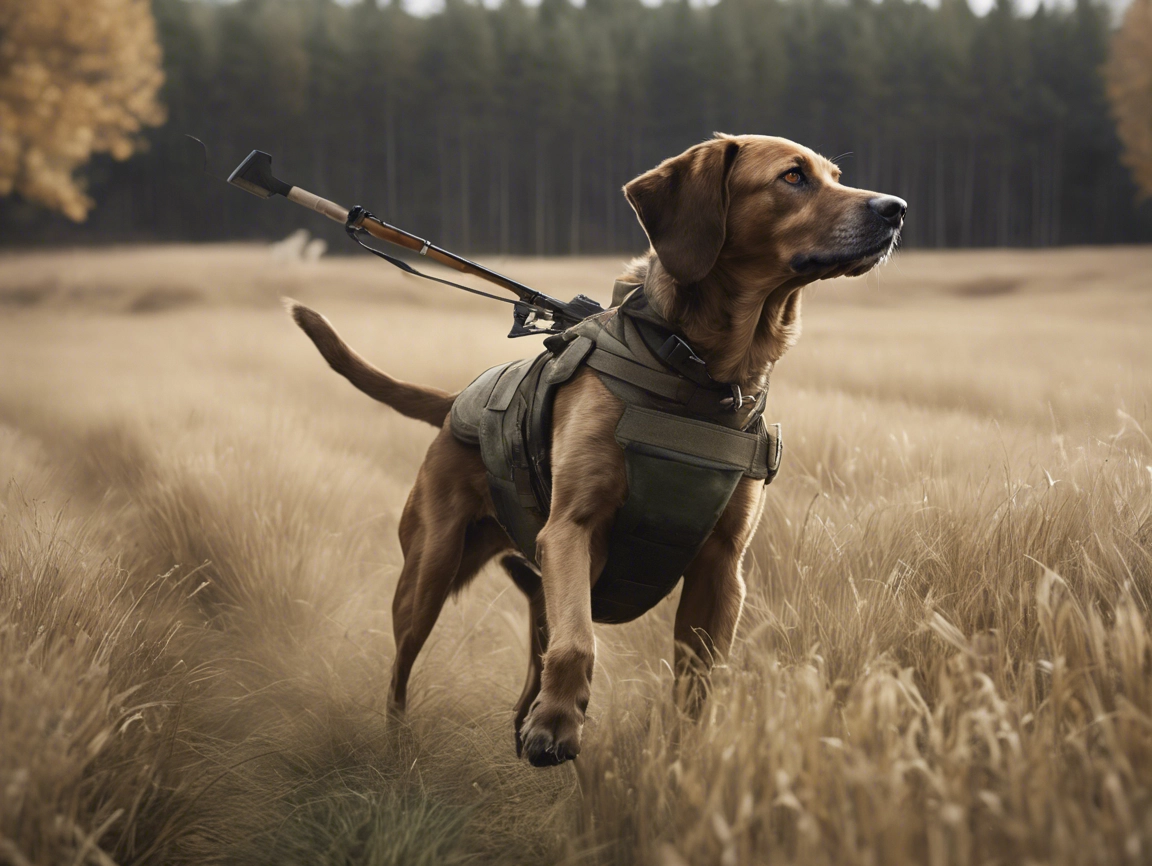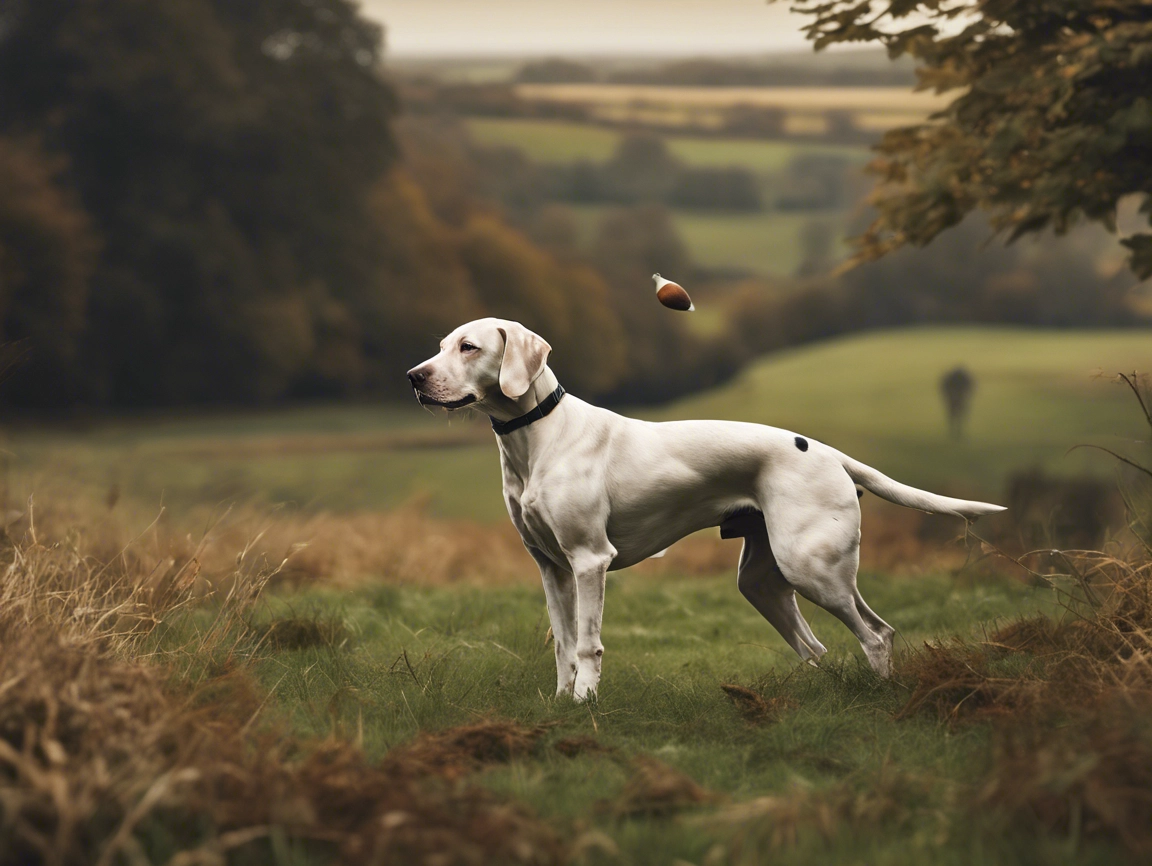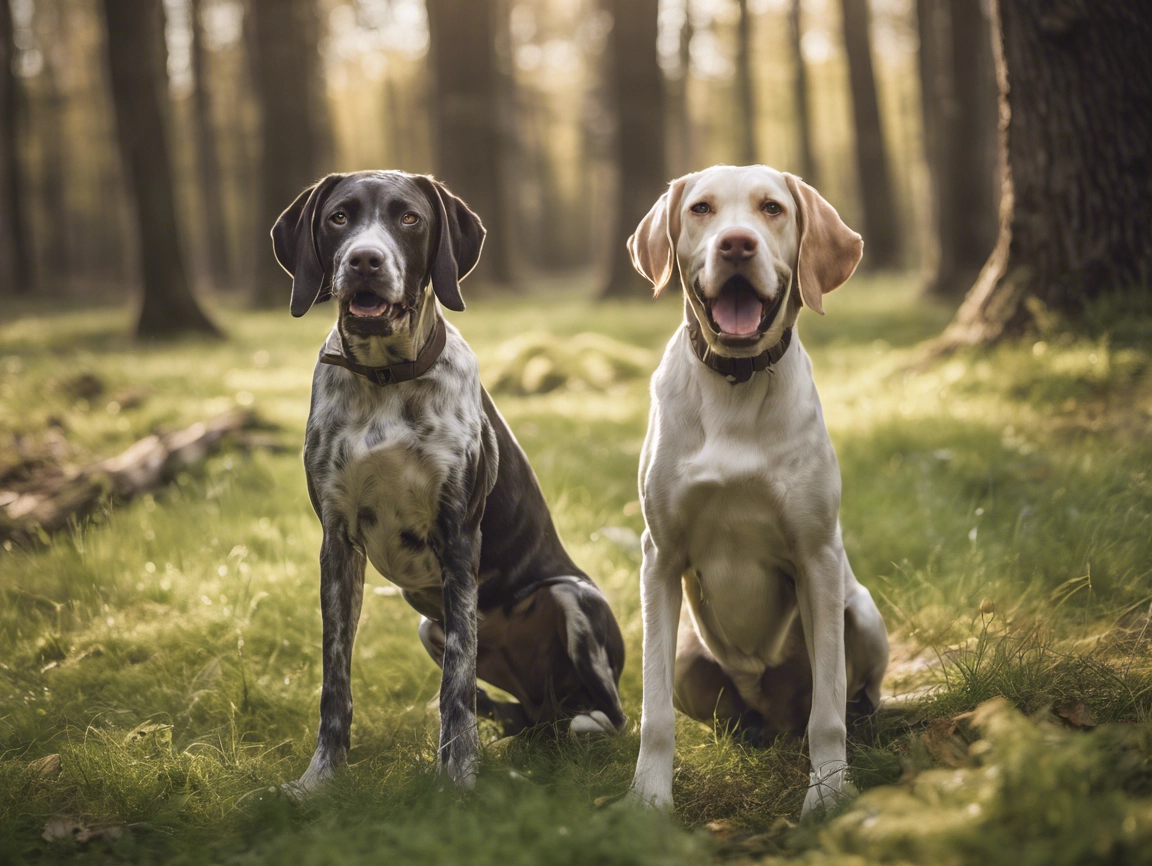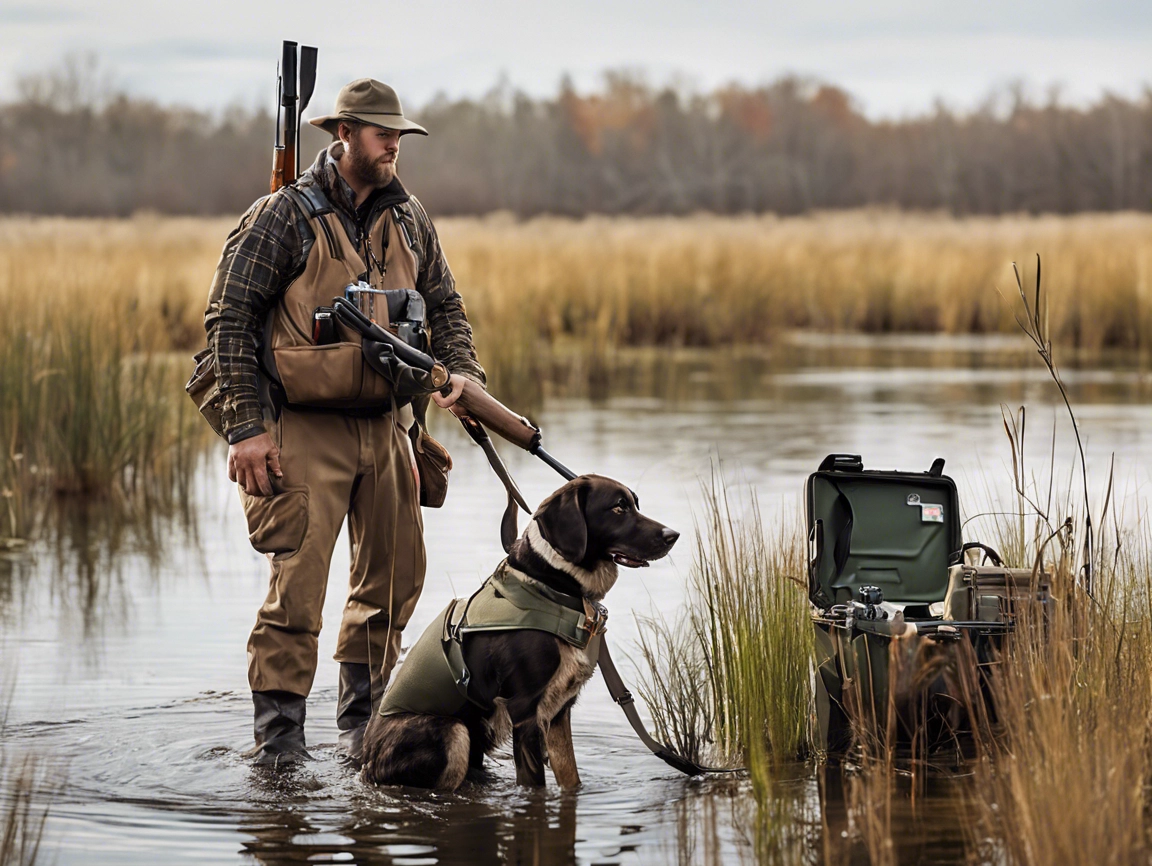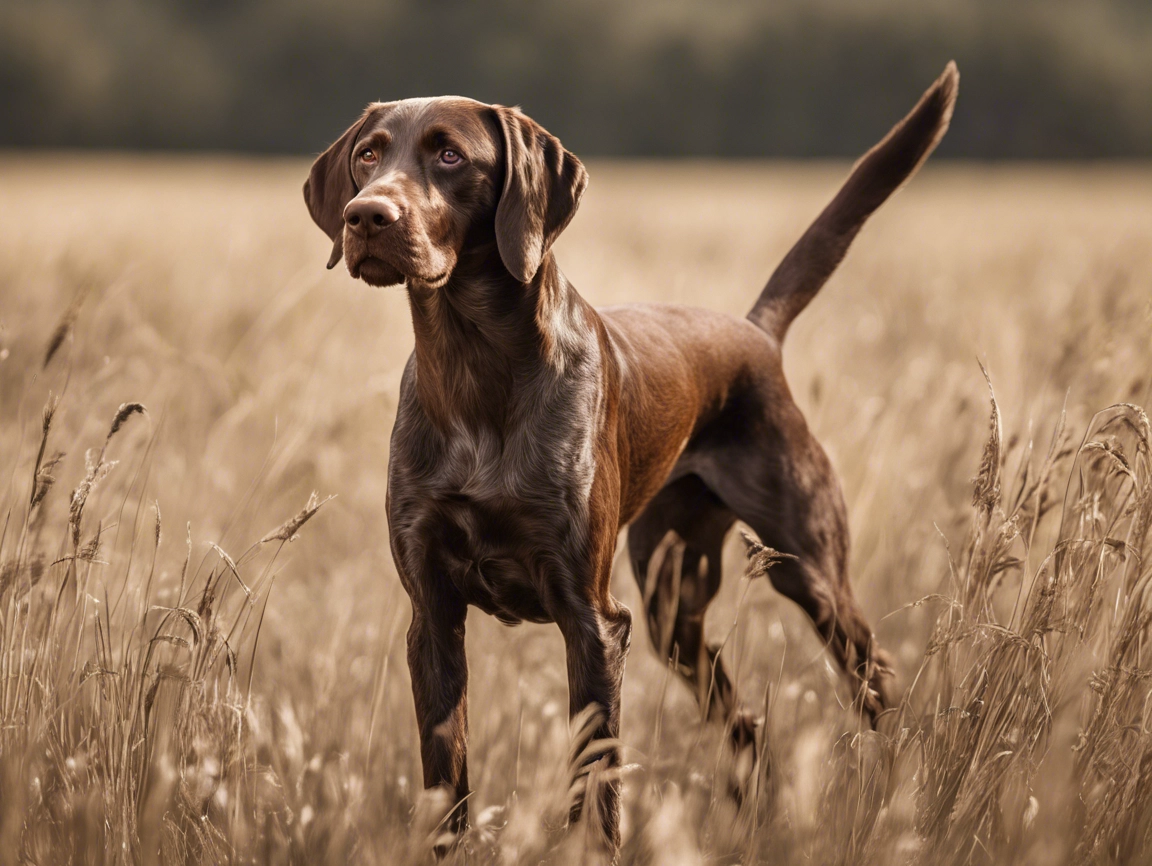Training your puppy for bird dog work starts early, laying the foundation for their success in the field. Whether you’re raising a Pointer, Setter, or Retriever, the right start can make all the difference. In this post, we’ll cover the essential steps in puppy training for bird dogs, focusing on early socialization, basic obedience, and introducing your puppy to hunting-related tasks.
H2: The Importance of Early Training for Bird Dogs
Starting training early for your bird dog is crucial for developing a well-behaved, reliable companion. Puppy training for bird dogs focuses on creating a strong bond and setting expectations. Early training helps your dog understand what’s expected and creates a framework for more advanced work in the field.
Key benefits of early training include:
- Building confidence in your puppy
- Establishing trust between you and your puppy
- Setting the foundation for specialized hunting tasks
- Preventing undesirable behaviors as they grow
H3: Socializing Your Bird Dog Puppy
Socialization is one of the first and most important aspects of puppy training. Exposing your bird dog puppy to various environments, people, and animals ensures they grow up well-adjusted and confident. A well-socialized puppy is more likely to focus during training and remain calm during hunts.
Socialization Tips:
- Introduce your puppy to different environments (fields, parks, etc.)
- Expose them to other dogs, animals, and sounds they may encounter while hunting
- Keep experiences positive, using rewards and praise to reinforce good behavior
- Start early: Begin socializing your puppy as soon as they’re old enough to leave the litter
By consistently introducing new experiences, your puppy will feel more comfortable in a variety of situations, making them a better hunting partner down the road.
H2: Basic Obedience Training for Bird Dog Puppies
Before diving into specialized bird dog training, basic obedience training is essential. Teaching your puppy commands like “sit,” “stay,” and “come” builds a foundation of control that will serve you both in the field.
Key Obedience Commands to Start:
- Sit: Teach your puppy to sit on command. This command helps control their excitement and focus.
- Stay: Reinforcing “stay” helps with patience, especially during hunting tasks.
- Come: Ensure your puppy comes to you when called. This builds trust and keeps your puppy safe.
Tip: Use positive reinforcement, such as treats and praise, to encourage good behavior and create a lasting bond between you and your puppy.
H3: Introducing Puppies to Birds: Step-by-Step
Once your puppy has a good grasp on basic obedience, you can start introducing them to birds. This early exposure helps them develop the necessary instincts for pointing, retrieving, or flushing game. It’s important to do this gradually and consistently.
Step-by-Step Guide for Introducing Your Puppy to Birds:
- Start with feathers or wings: Begin by showing your puppy bird feathers or wings to pique their interest. This introduces the scent and motion of birds without overwhelming them.
- Use live birds in a controlled environment: Once your puppy shows interest in the feathers, introduce a live bird in a safe, controlled environment. Let them approach the bird at their own pace.
- Reinforce calm behavior: Reward your puppy for calm, focused behavior around the bird. This will help them associate the presence of birds with positive experiences.
- Gradual exposure: Over time, increase the level of difficulty by moving to outdoor environments or using more active game birds.
This slow introduction to birds helps prevent overwhelming your puppy and builds confidence in their natural hunting instincts.
H2: Avoiding Common Puppy Training Mistakes for Bird Dogs
Training a bird dog puppy can be challenging, but avoiding common mistakes will help you raise a confident, capable hunting dog.
Common Puppy Training Mistakes to Avoid:
- Overtraining: Don’t push your puppy too hard. Short, consistent sessions are more effective than long, exhausting ones.
- Inconsistent commands: Always use the same command for the same action to avoid confusing your puppy.
- Lack of patience: Puppies learn at their own pace. Be patient and give them time to absorb the lessons.
- Skipping socialization: Don’t neglect socialization. An unsocialized puppy may struggle in the field when exposed to new situations.
By focusing on patience and consistency, you will lay the groundwork for a successful bird dog training journey.
Conclusion: Building a Strong Foundation for Your Bird Dog
Puppy training for bird dogs is an exciting and rewarding journey that sets the stage for a lifetime of successful hunting. Start with basic obedience, emphasize socialization, and gradually introduce your puppy to birds and the field. With consistency, patience, and positive reinforcement, your puppy will develop into a reliable, skilled hunting companion.
Remember, early training helps your bird dog grow into a confident, focused partner who excels in the field. Stay patient, and enjoy the process of shaping your puppy into the perfect bird dog.
